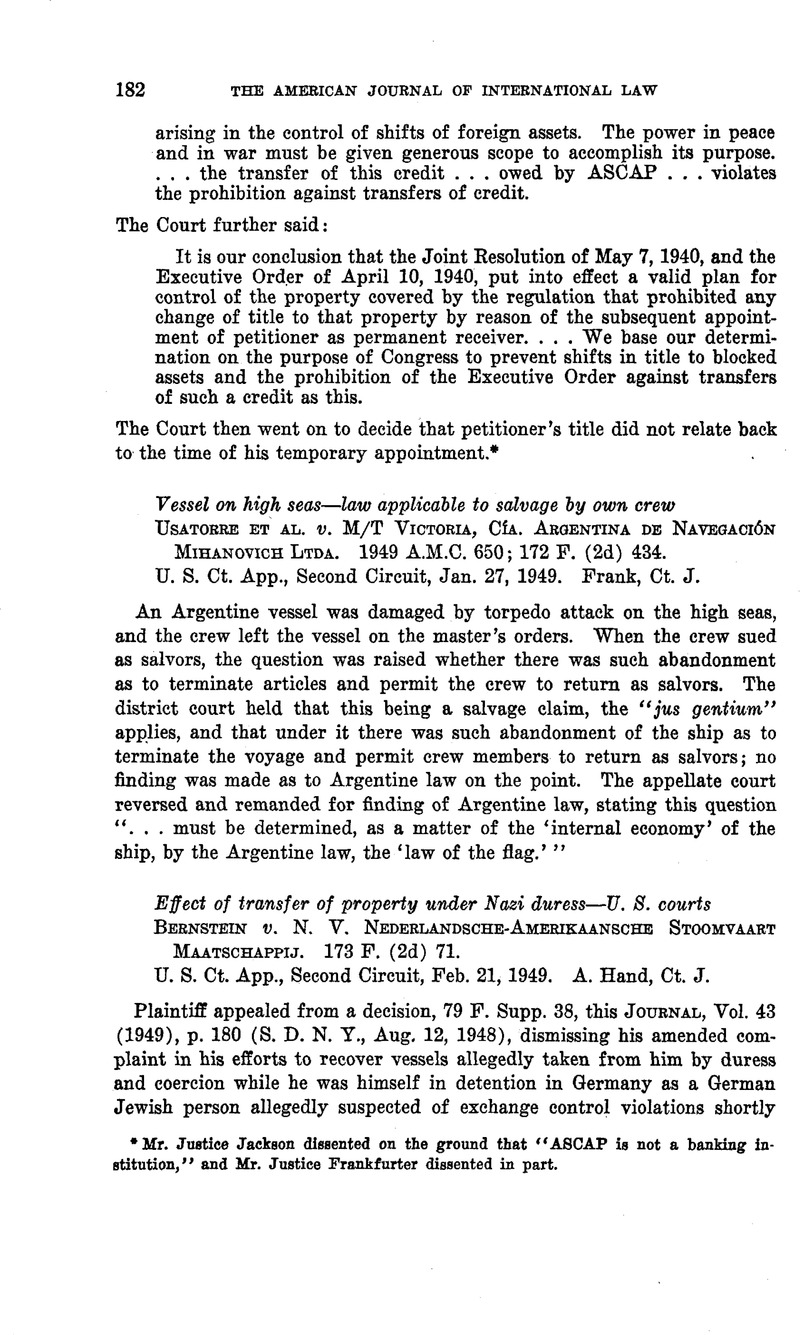No CrossRef data available.
Published online by Cambridge University Press: 20 April 2017

1 After this decision the Department of State made public (Dept. of State Press Release No. 296, April 27, 1949, Dept. of State Bulletin, Vol. XX, No. 514 (May 8, 1949), pp. 592–593; quoted in part in 1949 A.M.C. 1237), a letter dated April 13, 1949, from Jack B. Tate, Acting Legal Adviser of the Department of State, to plaintiff’s counsel, discussing the holding in Bernstein v. Van Heyghen Frères S.A. and its application to the instant case, which read in part as follows:
“You have inquired whether the Department might care to express its view concerning the Executive policy of this Government with respect to the exercise by courts of this country of jurisdiction in such cases. The Department considers the matter an important one and is pleased to express its views as follows :
“1. This Government has consistently opposed the forcible acts of dispossession of a discriminatory and confiscatory nature practiced by the Germans on the countries or peoples subject to their controls. [Citing various declarations of policy, directives to American occupation forces, and Military Government Laws of the TJ. S. Zone in Germany.] …
“2. Of special importance is Military Government Law No. 59 which shows this Government’s policy of undoing forced transfers and restituting identifiable property to persons wrongfully deprived of such property within the period from January 30, 1933 to May 8, 1945 for reasons of race, religion, nationality, ideology or political opposition to National Socialism. Article 1 (1). It should be noted that this policy applies generally despite the existence of purchasers in good faith. Article 1 (2).
“3. The policy of the Executive, with respect to claims asserted in the United States for the restitution of identifiable property (or compensation in lieu thereof) lost through force, coercion, or duress as a result of Nazi persecution in Germany, is to relieve American courts from any restraint upon the exercise of their jurisdiction to pass upon the validity of the acts of Nazi officials.”